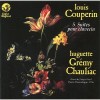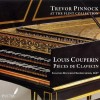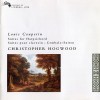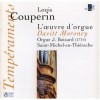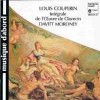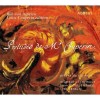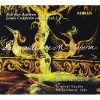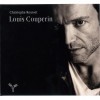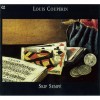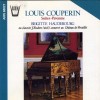Biography
Louis Couperin (c. 1626 – 29 August 1661) was a French Baroque composer and performer. He was born in Chaumes-en-Brie and moved to Paris in 1650–51 with the help of Jacques Champion de Chambonnières. Couperin worked as organist of the Church of St. Gervais in Paris and as musician at the court. He quickly became one of the most prominent Parisian musicians, establishing himself as a harpsichordist, organist, and violist, but his career was cut short by his early death at the age of thirty-five.
None of Couperin's music was published during his lifetime, but manuscript copies of some 200 pieces survive, some of them only rediscovered in the mid-20th century. The first historically important member of the Couperin family, Couperin made seminal contributions to the development of both the French organ school and French harpsichord school. His innovations included composing organ pieces for specific registrations and inventing the genre of the unmeasured prelude for harpsichord, for which he devised a special type of notation.
Most of the information about Couperin's life comes from two sources. Le Parnasse François, a 1732 book by Évrard Titon du Tillet, contains a biographical sketch describing certain details of his life, and some 30 organ pieces list not only the date but also the place of composition. Couperin was born around 1626 in Chaumes-en-Brie, a town 40 km south-east of Paris. His father, Charles Couperin, sieur de Crouilly, was a small landowner and part-time organist of a local church. Louis was reportedly an accomplished harpsichordist and violinist by 1650 (and was already composing by then), but had no connections whatsoever with any important musicians of the era. His sudden rise to fame, which happened during 1650–51, is explained in Le Parnasse François. Titon du Tillet writes that Louis, his two younger brothers Charles and François, and some of their friends visited Jacques Champion de Chambonnières on the feast of Saint James—Chambonnières' name day. The Couperins offered the host and his guests a short concert, playing several pieces composed by Louis. Chambonnières was impressed by Louis Couperin's talents, became his teacher and persuaded him to settle in Paris. There Chambonnières, who was the most prominent French harpsichordist of his time and musician to the King, introduced the young musician to the Court; Couperin's talents met with appreciation; by 1651 Couperin was already living in the city.
He almost certainly met Johann Jakob Froberger in 1651–52, Froberger's style becoming a major influence on Couperin's music. On 9 April 1653 he became organist of the Parisian church of St. Gervais, where he was paid 400 livres a year, plus lodgings. The position at this ancient church was one of the most important in France at the time. At some point — most probably after he became organist at St. Gervais–Couperin entered the royal service as a treble viol player. Titon du Tillet writes that Couperin had refused, out of loyalty to his old friend and teacher, to replace Chambonnières as royal harpsichordist, and so the post of violist was created especially for him. On 22 October 1655 he stood godfather to his sister's child at Chaumes-en-Brie; from July to October 1656 and around November 1658 he was frequently travelling to Meudon, where he was probably employed by Abel Servien, a diplomat and statesman. He travelled to Toulouse with the court in 1659. During his last years, Couperin lived in the organist's lodgings at St. Gervais with his two brothers, and died on 29 August 1661, aged thirty-five according to Le Parnasse François.
His brothers both played an important role in the development of French Baroque music. No compositions by François (known as "The Elder" or "Couperin de Crouilly") are known to survive, but his line of the family carried the name of Couperin into the 19th century. Charles Couperin (known as "Couperin-cadet") succeeded Louis as organist at St. Gervais and, in 1668, produced an only child, François Couperin le Grand, who became one of the most important French composers of the late Baroque era.







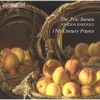

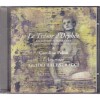
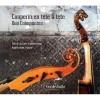

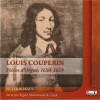
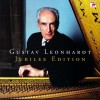
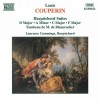
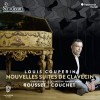

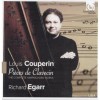
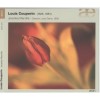
![Louis Couperin - Les pieces de clavessin [Tome I-V] - Blandine Verlet](http://static.classicalm.com/repository/composition-cover/small/31102-img1509026928285794.jpg)
